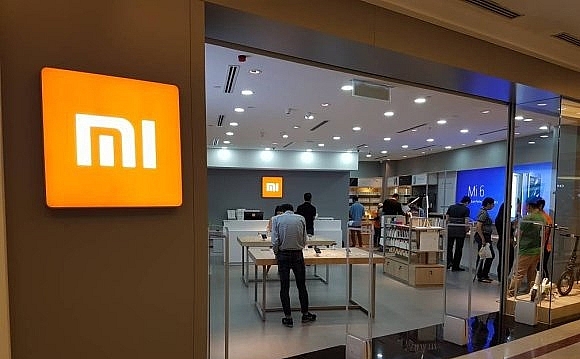Can Xiaomi bring long-term benefits to Digiworld?
 |
| Xiaomi has opened eight stores in Vietnam |
Retaining focus on mobile phones
Digiworld Corporation (HSX: DGW) recently announced its highest sales figures to date. The company’s revenue for the second quarter was VND1.363 trillion ($60 million), up 72 per cent on-year. This increased the revenue of the first half of the year to VND2.628 trillion ($115.8 million), up 70 per cent on-year and equalling 56 per cent of the yearly plan.
Digiworld’s profits also increased to VND23 billion ($1.01 million), up 13 per cent compared to the second quarter of last year. Profit after tax was estimated at VND42 billion ($1.85 million) for the first half of the year, equivalent to 42 per cent of the yearly plan.
This business result records the efficiency of co-operation between Digiworld and Xiaomi while applying Market Expansion Service (MES), which develops the market share of Xiaomi from 0 to 7 per cent over a single year, according to the latest data released by market research firm IDC.
However, in the first days of July, Xiaomi’s stock price in China reduced and it is concerned if this could affect the business situation of Digiworld in Vietnam, which exclusively distributes Xiaomi mobile phones in Vietnam.
In the past, Digiworld was one of the biggest distributors of ICT products in Vietnam. However, the company experienced negative growth after Nokia decided to leave the mobile phone sector in 2015.
At that time, Digiworld seemed unable to predict that a world leading mobile phone brand like Nokia would fall so fast, because Nokia mobile phones had made up over 90 per cent of revenue and gross profit of Digiworld’s mobile phone sector.
As a result, sales of Digiworld’s mobile phones dropped to VND1.056 trillion ($46.5 million) in 2016, and VND422 billion ($18.6 million) in 2017 from VND1.512 trillion ($66.6 million) in 2015.
Despite these challenges, Digiworld still focuses on distribution and MES. In March 2017, Digiworld signed the exclusive distribution contract of Xiaomi mobile phones, one of the biggest technical brands in China. Sales of this brand, which is distinguished by its high configuration yet low price, ranks fifth over the world.
Besides distribution, Digiworld supported Xiaomi to launch its Mi Store in Vietnam. To date, eight Mi Stores have opened across Vietnam. Digiworld has gained significantly in the first half of 2018 from this relationship with Xiaomi, similar to the period Digiworld collaborated with Nokia.
Household items just “accessories”
Despite high revenue in the first half of 2018, Digiworld is also facing significant risks as technology firms are vulnerable and easily fall into crisis situations due to decreasing trends, similar to the computer and laptop market.
Digiworld’s main competitors gave up distributing mobile phones several years ago. Major retailers like FPT Retail and Mobile World have rapidly changed their focus to items such as electronics, foods, or pharmaceuticals.
Last year Digiworld also began distributing household items and functional foods. However, sales of this sector have so far accounted for a tiny proportion at just 1 per cent of Digiworld’s total revenue and have shown a decreasing trend from VND22 billion ($0.97 million) in the first quarter to VND17 billion ($0.75 million) in the second quarter.
This figure affirms Digiworld’s strategy to still focus primarily on mobile phones, with the distribution of household items remaining supplementary. However, this situation is not suitable for a multi-product distribution company like Digiworld. Depending on any single item may lead the company to a crisis situation like that experienced several years ago.
What the stars mean:
★ Poor ★ ★ Promising ★★★ Good ★★★★ Very good ★★★★★ Exceptional
Related Contents
Latest News
More News
- EU and Vietnam elevate relations to a comprehensive strategic partnership (January 29, 2026 | 15:22)
- Vietnam to lead trade growth in ASEAN (January 29, 2026 | 15:08)
- Japanese business outlook in Vietnam turns more optimistic (January 28, 2026 | 09:54)
- Foreign leaders extend congratulations to Party General Secretary To Lam (January 25, 2026 | 10:01)
- 14th National Party Congress wraps up with success (January 25, 2026 | 09:49)
- Congratulations from VFF Central Committee's int’l partners to 14th National Party Congress (January 25, 2026 | 09:46)
- 14th Party Central Committee unanimously elects To Lam as General Secretary (January 23, 2026 | 16:22)
- Worldwide congratulations underscore confidence in Vietnam’s 14th Party Congress (January 23, 2026 | 09:02)
- Political parties, organisations, int’l friends send congratulations to 14th National Party Congress (January 22, 2026 | 09:33)
- Press release on second working day of 14th National Party Congress (January 22, 2026 | 09:19)

 Tag:
Tag:


























 Mobile Version
Mobile Version